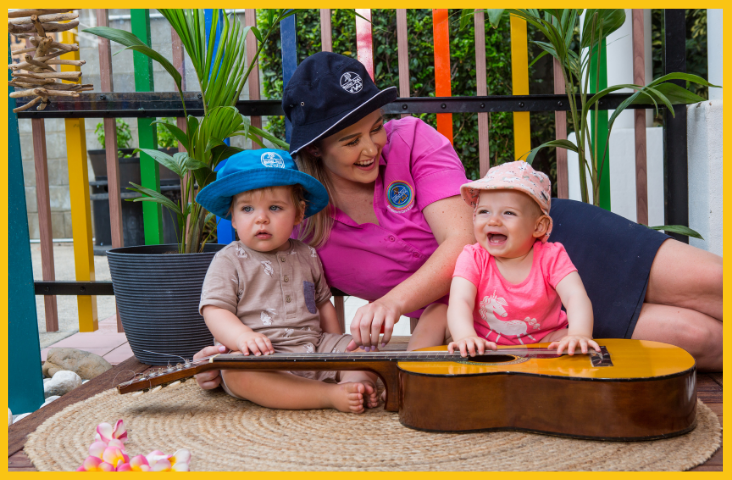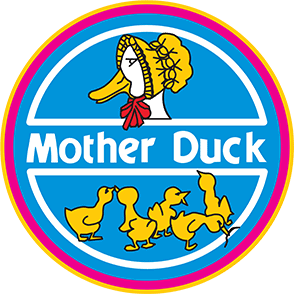
The Educator Mum
But what if he cries! I have to get out the door, have I got everything! Please don’t throw a tantrum! I just want to get home! We just have to go!
These are all thoughts any mother would know too well, regardless of whether you work with children, you have multiple children, or you are going through your experience of your first child. Sometimes it’s just hard to predict what they are going to do, let alone wonder who is watching and what they will think. Some people might care, and others might not but we all can understand that regardless of the situation no one likes to see a child in distress.
Upon arrival in the morning, we understand it’s busy, there are lots to do before the workday even begins. Wake up, get the children up, they may wake up happy they wake up grumpy who really knows how to predict that! Did they sleep well or were they up, crying, or maybe even just a restless night, we all know what that feels like. Then there are all little things that you have to do before you leave the house, organise breakfast for the children, maybe it’s a breakfast to go, maybe it’s breakfast at home, it often comes with a big mess to clean up with young children. Then there is remembering to have breakfast yourself or packing your own lunch or snacks for the day. Then there is getting dressed for the day and that love-hate relationship with school uniforms.

It’s so great that there isn’t that problem of what to wear today… but that also comes with; have I washed enough uniforms, are they ironed, did they put them away properly, or am I going to have to iron that shirt again, or maybe your children are still young and they need your help to get dressed or they are going through that phase of ‘I don’t want to wear that! I want my pretty dress!”, the one that you don’t want to get wrecked at daycare or you are saving for the party on the weekend.
Perhaps it’s a superhero costume that one they have already worn to the shops and want to wash but they won’t let it up and here comes the battle of getting dressed to get out the door, not to forget the shoes. Thinking about whether they have them, put them on, put them on in the car, or if they are younger and love to pull them off in the car.
You might remember this, maybe you are going through it now or maybe you never will but when you see that mum in the car park braving that face of ‘just get out the car’ smile, let her know its ok… you don’t know what war she has faced just to arrive at daycare! Some families have multiple drop-offs, and some have one. Sometimes they are smooth and sometimes they feel traumatic. It’s something many of us face before we even get to work and sometimes work feels like the easiest part of the day!

The workday regardless of the industry you work in, they all have ups and downs and can be responsible for a roller-coaster of emotions, good or bad throughout the day. These feelings are not too dissimilar to what a child would face in a day at school or at daycare.
Sometimes it’s busy, sometimes it’s full of excitement and fun, and other times it might just seem a bit too much. That is ok, that is how we help our children to learn to cope with their emotions throughout the day as they grow. The more we help now, the more equipped they will be to handle the emotional roller-coaster of life in a developing world.

They seem so little now and that seems so far away but every step we take now can assist our children in being confident and well equipped to deal with whatever they face in the future…… and here it comes…the big discussion, the dummy!
There are so many mixed feelings a mother faces with a dummy, for example, is it bad for their teeth, through to I need sleep or please stop crying. We understand this is a tricky situation and can often be driven by emotion. A lot of our educators are mums and have been here too. It is ok if they cry or meltdown it is their way of expressing their emotions. We spend the day teaching them that it is ok to have big emotions and supporting them to understand them.
Remember we are setting them up to support their capacity to understand and manage their emotions in the big wide world. During the day, your little one is supported to manage their big emotions through nurturing, communication, and working through their feeling so they can understand them and continue to engage and enjoy their time in the studio.

Educators are working with the children to leave their pacifiers in a safe place in their bags for them to use at sleep time, separating the reliance on a pacifier to deal with their emotions and supporting their development of communication.
It’s ok if they cry when you pick them up, they have had a big day and you are their safe person, the person they feel most comfortable expressing their emotions with. Sometimes a hug will soothe them sometimes they will feel better when they get home. That dummy might not be needed, it is ok for them to learn to manage their emotions, we understand. As educators and mums, we know where you are coming from, we also want to help and assist in your child’s development.
One of the most important things we can assist with in your child’s development is communication, helping your child to develop these skills supports their self-regulation and capacity to deal with emotions.
The development of children’s communication skills starts at a very young age as the muscles develop through sucking and feeding, this shapes their mouth and strengthens their tongue for them to be able to perform the mouth movements to babble and make other sounds.
As a child develops and grows, the nerves and muscles in their face and mouth strengthen to shape the structure of their face as well as the position of their teeth. The ability for a child to push their tongue against the back of their front teeth once they have moved down assists in many tricky sounds later in their speech development.

Having a pacifier teat pushing against the teeth with the sucking motion hinders the movement and strength of the tongue in turn delaying the child’s ability to make sounds such as ‘d’ and ‘th’ and many more as their speech develops.
As a mum you listen for those little mispronunciations thinking they are cute, is it something to worry about, or is it just them learning to talk?…. it could be that they haven’t heard the word clearly, it could be the thought that goes into saying that word or it could be the strength and development of the muscles they need to use to articulate the word clearly, any number of these along with the position of their teeth can impact on how your child’s speech develops.
The simple way we can assist in supporting children’s developing speech is by ensuring they are taking the pacifier out of their mouth when they are talking so they can make the correct muscle movements they need to pronounce their words. The less reliant a child is on their pacifier, the quicker their speech will develop as their face, mouth, and tongue muscles strengthen.
During the day educators will support your child in the transition of only needing their pacifier during their sleep period in order to help develop their speech and communication skills.
About Miss Amberley: Miss Amberley has been part of the Mother Duck Family since 2017. Miss Amberley has worked as a Kindergarten Teacher at Mother Duck for 3 years and then she commenced her role as Educational Leader in 2020.
Miss Amberley is passionate about mentoring educators in child development. And providing children with opportunities to reach their full potential.
She has over 20 years of experience working in education and holds her Bachelor of Education. Miss Amberley is currently studying Psychology and Social Science.


